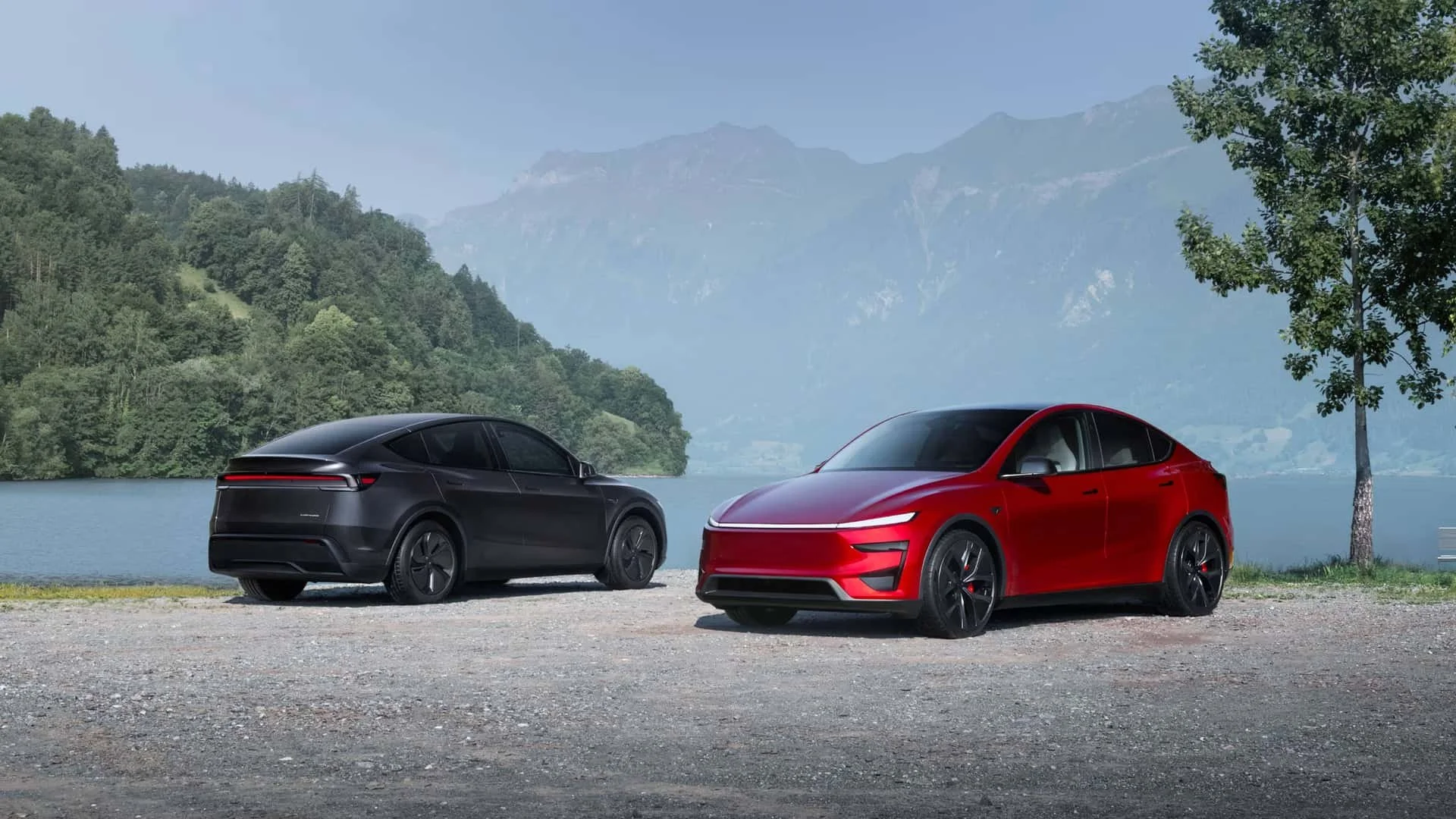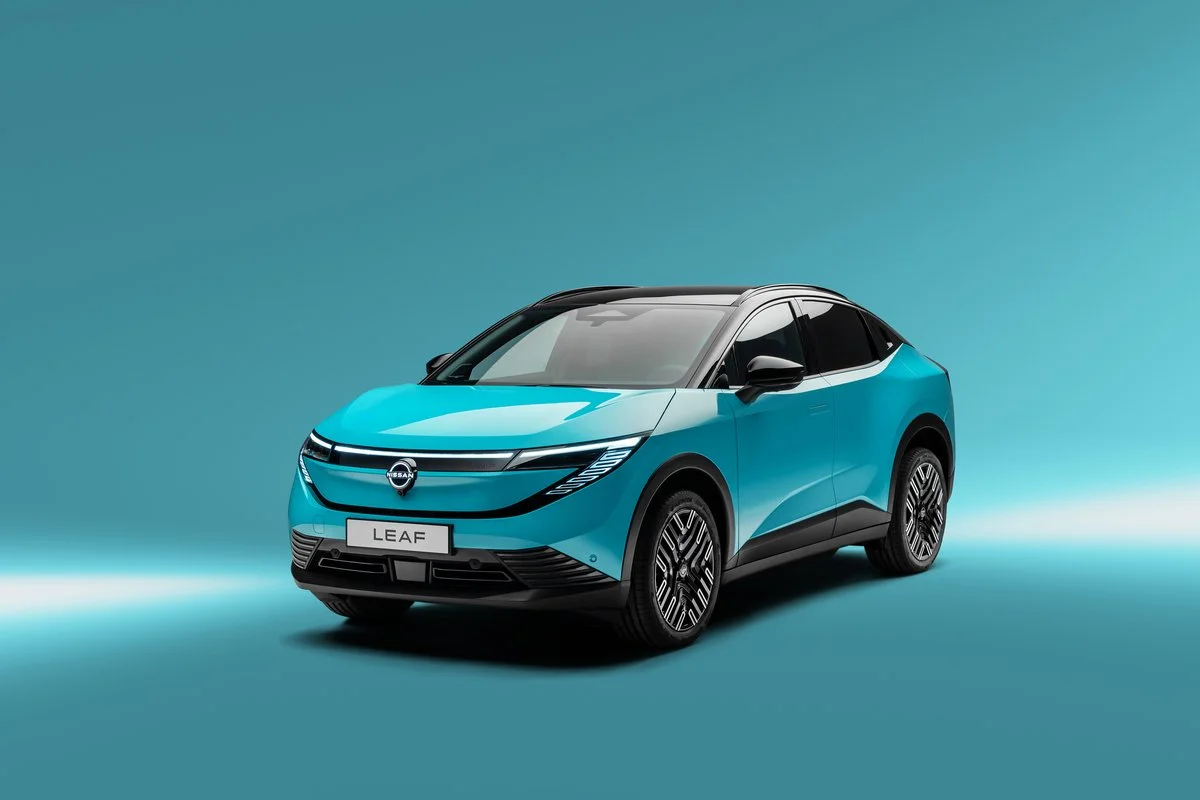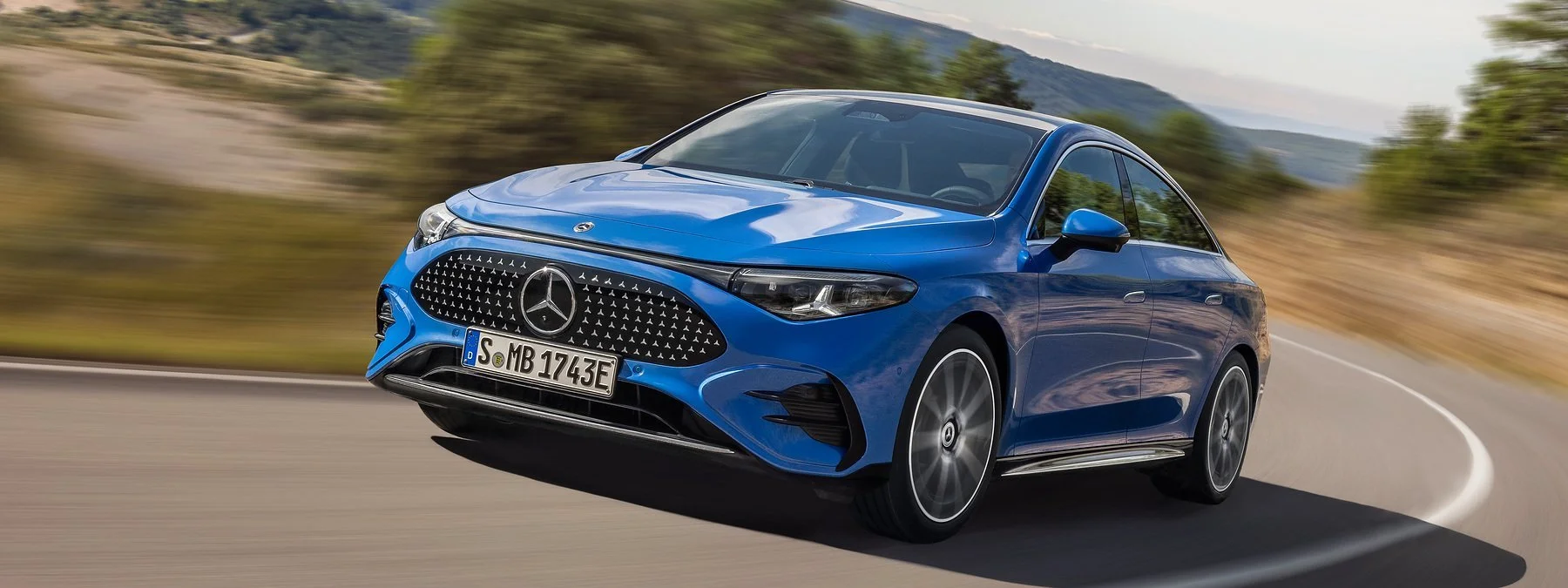The Most Efficient EVs For 2026
Source: Tesla Press
Electric cars have gained popularity because of their reduced environmental impact compared to petrol and diesel cars. Efficiency concerning petrol and diesel cars relates to the distance covered in relation to fuel consumption. In an EV, efficiency refers to the distance travelled on a full charge.
To calculate an electric car's efficiency, you can use the following formula: EV range (miles) ÷ kWh battery size = miles per kWh.
The battery's efficiency is determined by the miles per kWh ratio. An average vehicle typically achieves an efficiency of 3 miles/kWh, while the most efficient EVs reach around 5 miles/kWh. EV efficiency can vary depending on car size, driving style, location, battery capacity, tyre condition and more.
This post will outline the top 10 most exciting and efficient electric cars for 2026.
2026 Update: New Efficient Models to Watch
The electric car market continues to evolve rapidly, with several exciting efficient models launching in 2026 that could reshape this list. Here's what to look out for:
Nissan's Electric Renaissance
Nissan is making a significant push in the efficiency space with three new models. The all-new electric Nissan Micra, launching in late 2025/early 2026, will offer up to 248 miles of range from its 52kWh battery option – translating to an impressive 4.8 miles per kWh. Built on the same AmpR Small platform as the highly efficient Renault 5 E-Tech, it's designed specifically for European drivers seeking compact efficiency.
Following closely behind, the third-generation Nissan Leaf arrives in 2026 with a complete redesign. While full efficiency figures haven't been released, Nissan has confirmed improved aerodynamics and a more efficient powertrain. The electric Nissan Juke, also launching in 2026, will likely share similar battery options to the Micra, offering crossover practicality without sacrificing efficiency.
Mercedes CLA Electric: Long-Range Leader
Mercedes-Benz is set to shake up the efficiency rankings with the all-new CLA Electric, boasting an extraordinary 492-mile range. While the exact battery size hasn't been confirmed, early estimates suggest it could achieve around 4.5-5 miles per kWh, potentially securing a spot among the most efficient EVs on the market. Its sleek aerodynamic design and advanced powertrain technology make it one to watch for efficiency-focused drivers.
Toyota's EV Entry
Toyota's first dedicated electric vehicle is expected to launch in 2026, and given Toyota's legendary reputation for efficiency in hybrids, expectations are high. The model will likely prioritise real-world efficiency and practicality, potentially challenging the established players in the efficiency rankings.
Budget-Friendly Efficiency
The sub-£25,000 EV market is expanding with several new efficient options. The Nio Firefly, launching in 2025, brings impressive efficiency to the budget segment, while BYD's continued expansion includes several models with rapid charging capabilities and competitive efficiency figures.
Making Efficient EVs Affordable Through Salary Sacrifice
All these new efficient models will be available through electric car salary sacrifice schemes, allowing UK employees to save 20-50% compared to traditional leasing. With the 2026 Benefit-in-Kind rate remaining at just 3%, there's never been a better time to access cutting-edge efficient technology. Whether you choose the compact Nissan Micra or the long-range Mercedes CLA, The Electric Car Scheme makes these efficient options genuinely affordable through pre-tax salary deductions.
Nio Onvo L60
First on the list, and perhaps the least well-known, is the Nio Onvo L60, launched in the UK in early 2025. This launch is especially noteworthy because the UK, unlike the EU, isn’t imposing a 31% import tariff on Chinese EVs.
The Onvo L60 offers two battery options: 60.6kWh and 85kWh, each available in single-motor and dual-motor configurations. The most efficient model is the single-motor version with the 60.6kWh battery, delivering an impressive 345 miles on a single charge - equivalent to 5.6 miles per kWh.
| Make and Model | Range | Battery Size | Efficiency | Estimated Winter Range |
|---|---|---|---|---|
| Nio Onvo L60 | 345 miles | 60.6kWh | 5.6 miles/kWh | 242-276 miles |
We've used the range and battery size of the Nio Onvo L60. To understand efficiency in all of the tables included in this blog, we've used the following calculation: EV range (miles) ÷ kWh battery size = miles per kWh
Tesla Model 3
The Long Range Rear-Wheel Drive Tesla Model 3 takes efficiency and range to the next level with a WLTP range of 436 miles, surpassing even the Lucid Air Pure. Powered by a 79.7kWh battery, it matches the Lucid Air Pure in efficiency at 5 miles per kWh, consuming just 21kWh per 100 miles. This marks a significant improvement over the original Model 3, which had a 75kWh battery and a range of 318 miles. It's a leap forward in both performance and practicality. Tesla is regularly updating its cars to improve performance and efficiency - with the latest update coming in October 2025 - featuring hardware changes like a new front camera and the return of the physical indicator stalk, along with software improvements and an increase in range for the Long Range model.
| Make and Model | Range | Battery Size | Efficiency | Estimated Winter Range |
|---|---|---|---|---|
| Long Range Rear-Wheel Drive Tesla Model 3 | 436 miles | 79.7kWh | 4.5 miles/kWh | 350 miles |
We've used the range and battery size of the Long Range Rear-Wheel Drive Tesla Model 3. To understand efficiency in all of the tables included in this blog, we've used the following calculation: EV range (miles) ÷ kWh battery size = miles per kWh
Lucid Air
The Lucid Air offers a whopping 520-mile range and is one of the longest-range EVs in the world. Unfortunately, the Lucid Air is not yet available in the UK, but it is believed it will be launched to customers within the next two years.
The Lucid Air Pure has received updates to the model line, designed to make it more efficient. The Air Pure delivers 420 miles of EPA-estimated range from an 84kWh battery. It has 5.0 miles of range per kilowatt hour (kWh) of energy. It has also earned the highest MPGe (miles per gallon equivalent) rating ever given to an EV with 146 MPGe from the EPA (Environmental Protection Agency).
| Make and Model | Range | Battery Size | Efficiency | Estimated Winter Range |
|---|---|---|---|---|
| Lucid Air Pure | 420 miles | 84kWh | 5 miles/kWh | 287-328 miles |
Fiat 500 Electric
It may shock some that the Fiat 500 electric is so high on this list, but this compact and lightweight electric car attributes its efficiency to its ability to cover 118 miles on a single charge with a 24kWh battery. Although, if you’re looking for something with a slightly longer range, you don’t need to look far because you can choose the long-range option which offers 203 miles on a single charge using the 42kWh battery.
Maintaining this efficiency requires a gentle driving approach for the Fiat 500. It might be quite tempting to zip around in this ideal city car, but doing so can rapidly deplete your battery capacity.
| Make and Model | Range | Battery Size | Efficiency | Estimated Winter Range |
|---|---|---|---|---|
| Fiat 500e | 118 miles | 24kWh | 4.9 miles/kWh | 83-94 miles |
Vauxhall Corsa Electric
The Corsa Electric offers two battery and motor combinations to suit different needs: a 50kWh battery with a range of 222 miles and a 51kWh “Long Range” battery with an extended range of 246 miles.
The Long Range version is the most efficient and even includes a heat pump for more efficient temperature regulation, adding an extra touch of practicality. However, as with all the cars mentioned in this blog, it’s important to note that the Corsa Electric’s range may be lower than the official figures under real-world driving conditions.
| Make and Model | Range | Battery Size | Efficiency | Estimated Winter Range |
|---|---|---|---|---|
| Vauxhall Corsa Long Range | 245 miles | 51kWh | 4.8 miles/kWh | 172-197 miles |
Tesla Model Y
Source: Tesla Press
The Tesla Model Y was updated in late 2025 - featuring a 62.5 to 84.7 kWh battery, depending on variant. The Long Range All Wheel Drive offers a whopping 387 miles of range, with its 84.7 kWh battery pack - rechargeable in just 25 minutes. Other updates include a Cybertruck inspired front-end, with improvements to aerodynamics, and efficiency. On the inside, the Tesla Model Y benefits from improved acoustic glass, and suspension - increasing the ride comfort for those long journeys.
The most noticeble interior change is the rear touchscreen for climate and media, improved materials, and a new ambient lighting strip. The center console has also been redesigned, and the build quality has been improved.
| Make and Model | Range | Battery Size | Efficiency | Estimated Winter Range |
|---|---|---|---|---|
| Tesla Model Y Long Range RWD | 387 miles | 84.7kWh | 4 miles/kWh | 200-236 miles |
2025 Kia EV3
The upcoming 2025 Kia EV3 has two battery options and different ranges: the 58.3kWh battery which has a WLTP range of 270 miles and the 81.4kWh battery which has a WLTP range of 375 miles. The latter is the most efficient achieving 4.6 miles per kWh!
The EV3's range can vary depending on driving style, weather conditions, and other factors. For example, a heat pump isn't standard on the EV3, which can make it harder to match the WLTP figures in real-world conditions.
The EV3 can charge from 10–80% in about 31 minutes. It also has vehicle-to-load (V2L), vehicle-to-grid (V2G), and vehicle-to-home (V2H) capabilities
| Make and Model | Range | Battery Size | Efficiency | Estimated Winter Range |
|---|---|---|---|---|
| 2025 Kia EV3 | 375 miles | 77.4kWh | 4.41 miles/kWh | 263-300 miles |
Hyundai Ioniq 6
The Hyundai Ioniq 6 boasts an impressive range of 342 miles, powered by a 77.4kWh battery. Its streamlined design enhances efficiency compared to the Ioniq 5, featuring a curved roofline, wheel gap reducers, and an active air flap.
With a combined city and motorway rating of 140 MPGe, it is five times more efficient than the 2024 EV model average of 28 MPGe, according to EPA estimates. The EPA has recognised the Ioniq 6 as the most efficient electric vehicle for two years in a row in the US.
| Make and Model | Range | Battery Size | Efficiency | Estimated Winter Range |
|---|---|---|---|---|
| Hyundai Ioniq 6 SE | 342 miles | 77.4kWh | 4.41 miles/kWh | 239-274 miles |
Mercedes-Benz EQS
The Mercedes-Benz EQS seamlessly combines luxury and comfort, setting a high standard for electric vehicles in its class. The 2024 model boasts an impressive 118kWh battery, delivering a remarkable range of up to 511 miles on a single charge, making it one of the most efficient options in the luxury EV market.
This exceptional range is matched by the EQS's striking size, measuring over 5.2 meters in length, which adds to its road presence and spacious interior. However, its considerable dimensions make it less ideal for navigating tight city streets, positioning it as a better choice for long-distance journeys or open-road driving where its performance and elegance truly shine.
| Make and Model | Range | Battery Size | Efficiency | Estimated Winter Range |
|---|---|---|---|---|
| Mercedes-Benz EQS 450+ | 511 miles | 118kWh | 4.3 miles/kWh | 358-409 miles |
Lexus RZ
Lexus has unveiled the RZ 300e, a front-wheel-drive variant of its luxury electric SUV, offering a range of 297 miles. Despite sharing the same 71.4kWh lithium-ion battery as its all-wheel-drive counterpart, the 300e is more efficient, thanks to its single-motor setup. While its range falls short of some rivals, the RZ 300e stands out for its spacious interior and exceptional comfort, making it an excellent choice for those prioritizing luxury and practicality.
| Make and Model | Range | Battery Size | Efficiency | Estimated Winter Range |
|---|---|---|---|---|
| Lexus RZ 300e | 297 miles | 71.4kWh | 4.15 miles/kWh | 190-217 miles |
How Efficient Are Electric Cars Compared To Petrol Or Diesel?
Electric vehicles are cleaner, quieter and more efficient than petrol and diesel cars. This is because electric motors are more efficient than combustion engines, converting up to 95% of the energy they draw into power at the wheels, compared to roughly 20-30% for petrol or diesel engines.
By switching to an electric car, you could save up to £1,955 annually on running costs compared to petrol and diesel vehicles, with the exact savings depending on how many miles you drive.
| Annual mileage | Petrol/Diesel cost estimate per year | Electric cost estimate per year | Savings in an EV |
|---|---|---|---|
| 10,000 miles | £1,599 | £622 | £978 |
| 20,000 miles | £3,198 | £1,243 | £1,955 |
The figures above have been taken from Select Car Leasing from their Fuel Cost Calculator.
How Salary Sacrifice Makes Efficient EVs More Affordable
One of the biggest barriers to accessing these highly efficient electric cars is the upfront cost. Through an electric car salary sacrifice scheme, UK employees can significantly reduce these costs.
With the 2026 Benefit-in-Kind rate at just 4%, drivers can save 20-50% on any of the efficient models mentioned above. The scheme allows you to pay for your EV through pre-tax salary, reducing both Income Tax and National Insurance contributions.
For example, a £40,000 efficient electric car could cost you as little as £250-300 per month after tax savings through salary sacrifice, compared to £500+ per month through traditional leasing. This makes owning one of the most efficient EVs in this list genuinely affordable.
Learn more about how salary sacrifice works for electric cars.
How To Optimise Your Electric Car’s Efficiency
To optimise your electric car’s efficiency, you should make sure you’re doing the following:
Maximise Regenerative Braking
Regenerative braking is your EV's built-in efficiency booster, converting braking energy back into usable electricity. While some drivers disable this feature, leaving it on can recapture up to 70% of your braking energy. For best results, use gradual deceleration rather than sudden stops – this maximises the amount of energy your car can recover and store back in the battery.
Reduce the weight of your car
Aerodynamic drag caused by wind resistance can reduce the distance an EV can cover on a single charge. Increased vehicle weight demands more energy for movement, so reducing the vehicle’s weight can enhance overall efficiency and performance.
Turn Off Unnecessary Features
Battery energy is required for heating and cooling a car. If possible, try to minimise unnecessary features. Many EVs offer a pre-conditioning feature that enables you to heat or cool your car while it's plugged in which is a good way of preserving energy.
Keep An Eye On Your Tyres
The range of your electric car can be influenced by the tyre pressure and the size of the alloy wheels you've selected. Low tyre pressure reduces range by increasing tyre resistance to the road. Therefore, to keep your car moving requires more energy.
Finding Your Speed Sweet Spot
Your EV's efficiency drops dramatically at higher speeds due to aerodynamic drag. Most electric vehicles are most efficient between 45-60 mph, with efficiency declining sharply above this range. As an example, driving at 75 mph typically uses about 25% more energy than cruising at 60 mph. For maximum range, try to maintain speeds around 60 mph on motorways whenever practical.
Pre-condition Your EV: Start Your Journey Right
Warm up or cool down your car while it's still plugged in to save valuable battery power. By preconditioning your vehicle's cabin and battery using grid power, you avoid draining your battery for climate control at the start of your journey. Most EVs let you schedule this through their apps – just set it 30 minutes before departure for optimal efficiency.
Introducing electric car salary sacrifice schemes is part of the government’s initiative to create a greener future for the UK. Schemes like ours, at The Electric Car Scheme, are in place to help drivers make the switch to an electric car easier and more cost-effective - and ultimately help reach the UK’s net zero target.
With The Electric Car Scheme, employees can access the most efficient electric cars available through salary sacrifice, saving 20-50% compared to traditional leasing.
With the 2026 Benefit-in-Kind rate at just 4%, it's the most cost-effective way to drive an efficient EV. The company leases the car on an employee's behalf, and in return, the employee pays through their gross salary, maximising tax savings while minimising their carbon footprint.
Ready to Get an Efficient Electric Car? Explore our range of the most efficient electric cars available through salary sacrifice and see how much you could save. Use our EV savings calculator to find out your exact savings based on your salary.
FAQ’s
What is the most efficient electric car in 2026?
The Tesla Model 3 Long Range currently leads at 5 miles/kWh followed closely by Nio Onvo L60 currently leads with 5.6 miles/kWh.
How much can I save with an efficient EV through salary sacrifice?
UK employees can save 20-50% on efficient electric cars through salary sacrifice, with the 2026 BiK rate at just 3%.
What affects electric car efficiency?
Key factors include driving speed, weather conditions, vehicle weight, tyre pressure, and use of climate control features.
Are you an employer?
BOOK A DEMOAre you an employee?
SEE AVAILABLE CARSYou Might Also Like…
Last updated: 04/11/2025
Our pricing is based on data collected from The Electric Car Scheme quote tool. All final pricing is inclusive of VAT. All prices above are based on the following lease terms; 10,000 miles pa, 36 months, and are inclusive of Maintenance and Breakdown Cover. The Electric Car Scheme’s terms and conditions apply. All deals are subject to credit approval and availability. All deals are subject to excess mileage and damage charges. Prices are calculated based on the following tax saving assumptions; England & Wales, 40% tax rate. The above prices were calculated using a flat payment profile. The Electric Car Scheme Limited provides services for the administration of your salary sacrifice employee benefits. The Electric Car Scheme Holdings Limited is a member of the BVRLA (10608), is authorised and regulated by the FCA under FRN 968270, is an Appointed Representative of Marshall Management Services Ltd under FRN 667174, and is a credit broker and not a lender or insurance provider.
Copyright and Image Usage: All images used on this website are either licensed for commercial use or used with express permission from the copyright holders, in compliance with UK and EU copyright law. We are committed to respecting intellectual property rights and maintaining full compliance with applicable regulations. If you have any questions or concerns regarding image usage or copyright matters, please contact us at marketing@electriccarscheme.com and we will address them promptly.

















